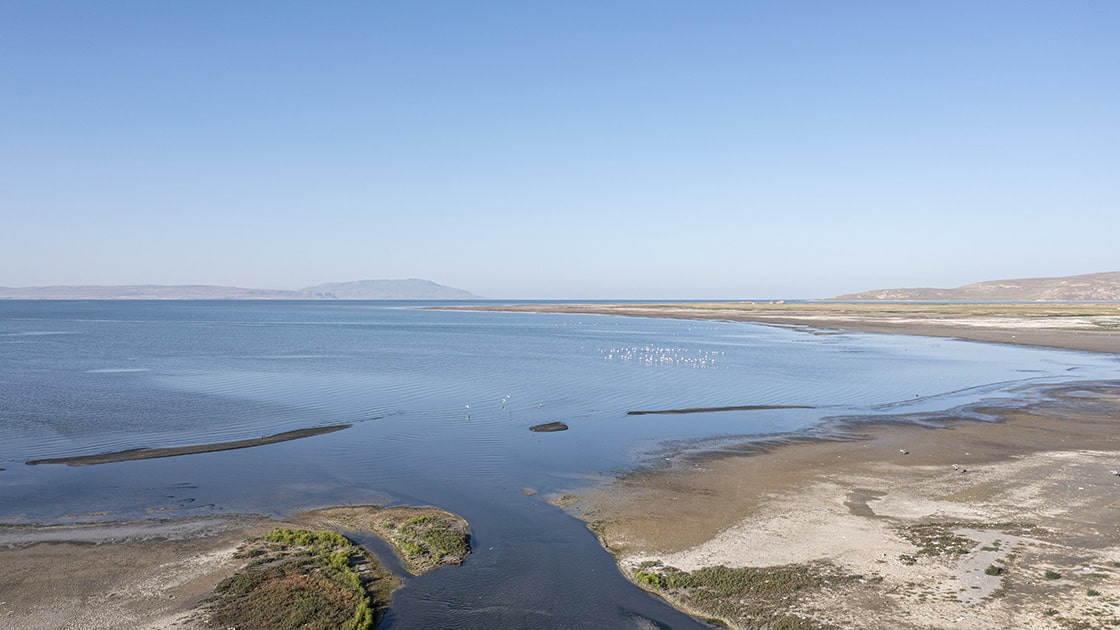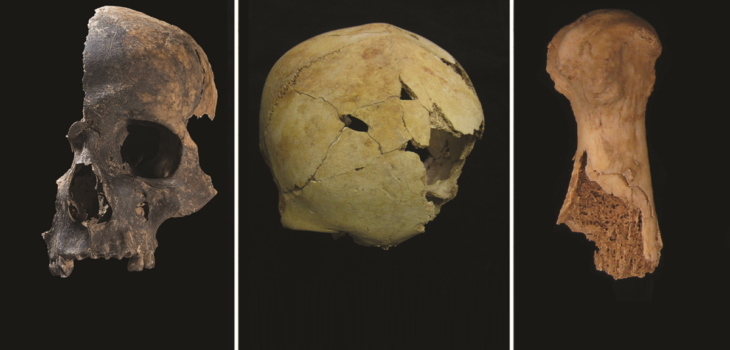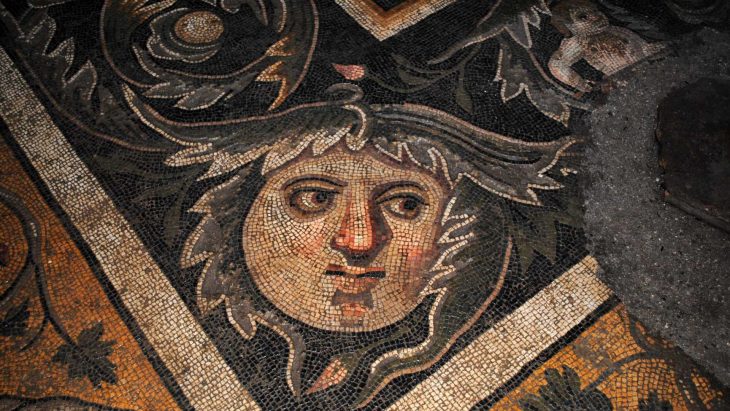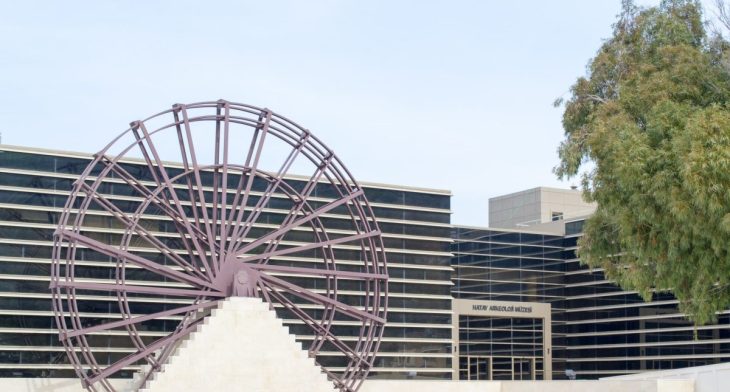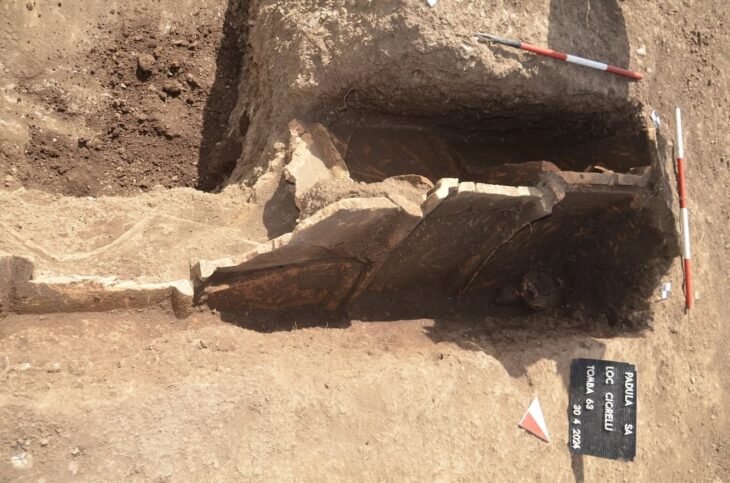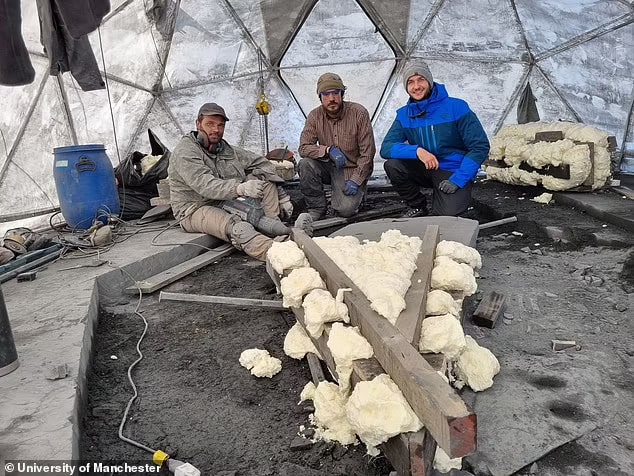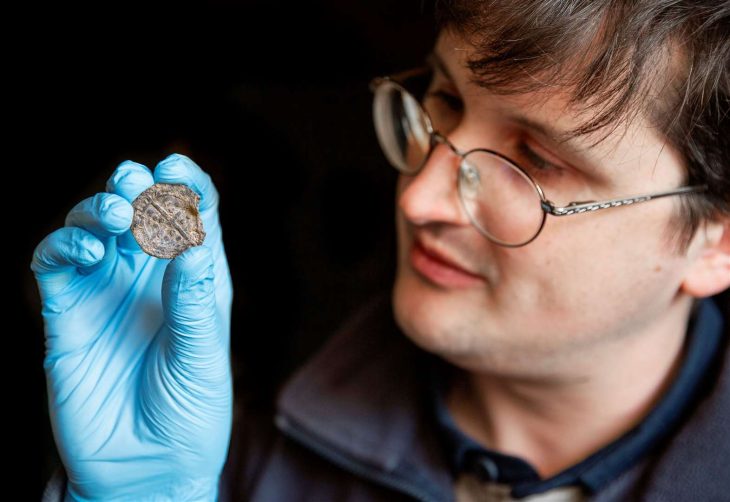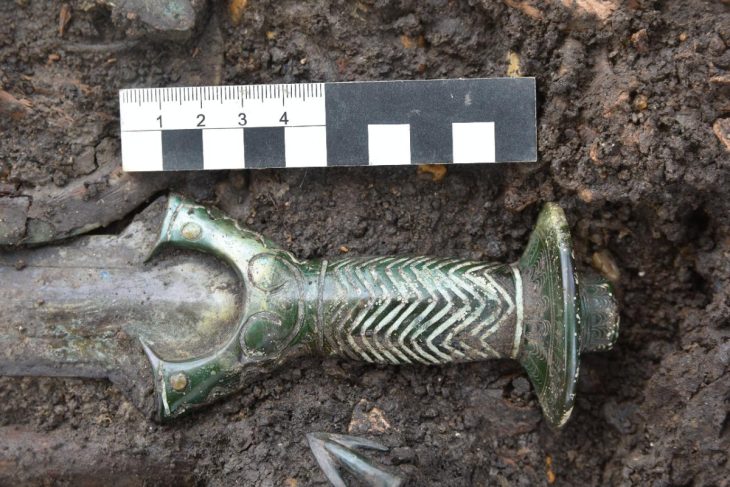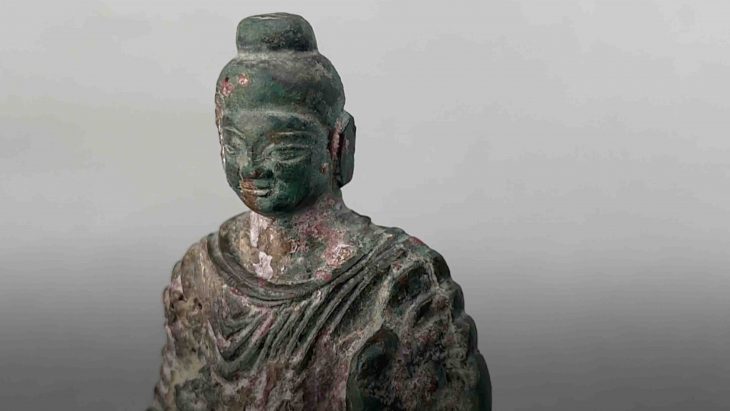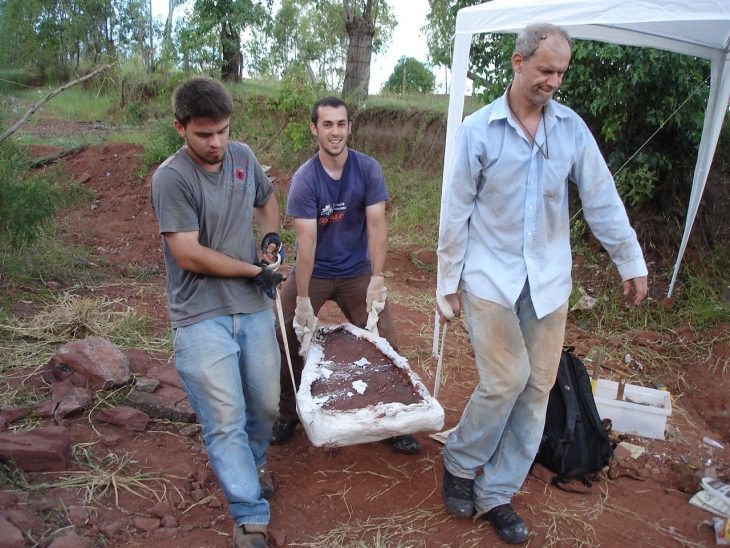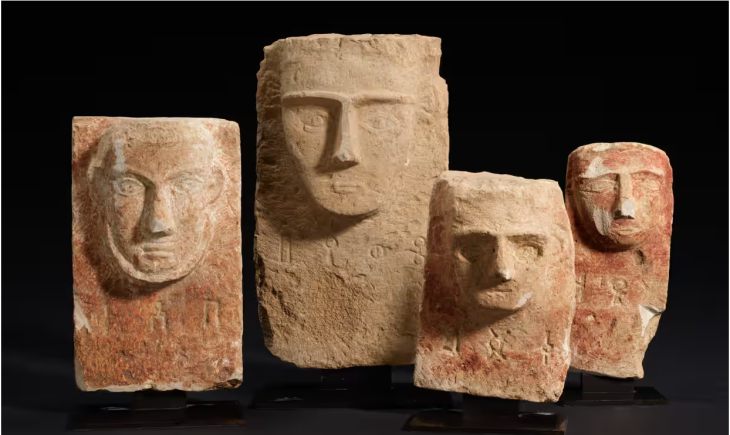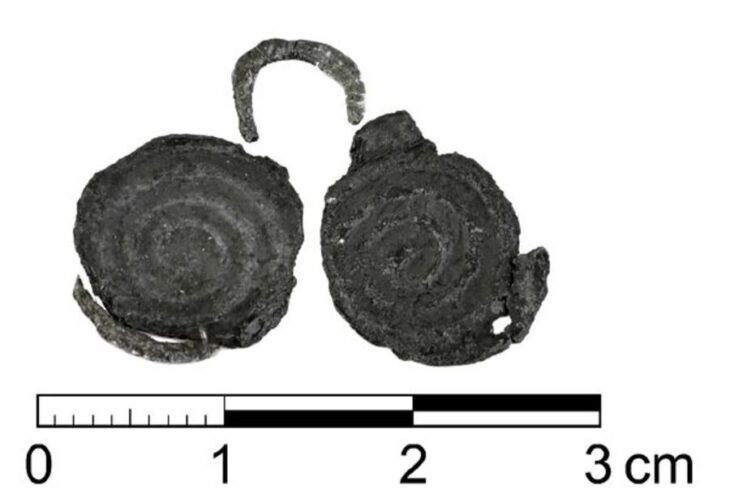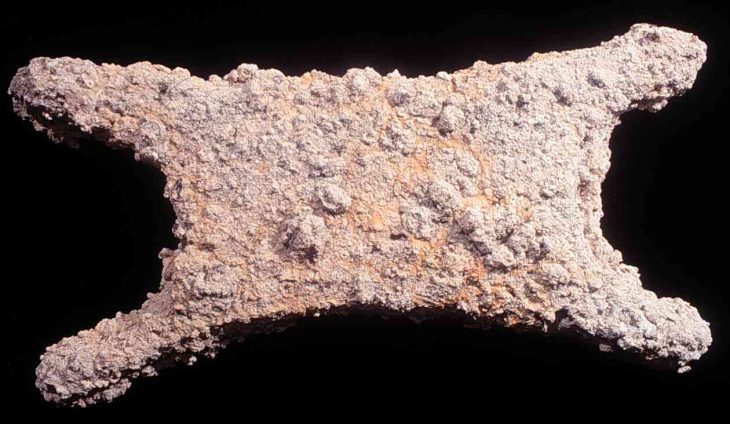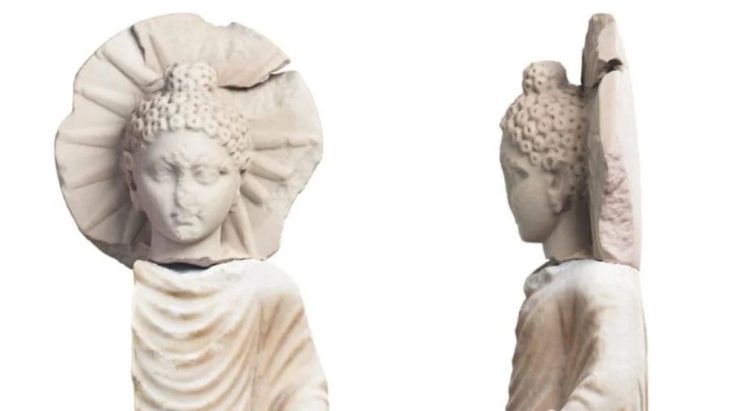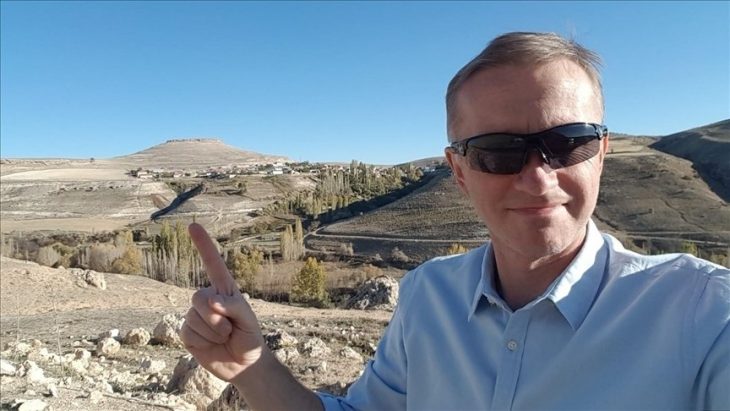Located in the eastern province of Van in Turkey, the falling water level of Lake Van, with the decrease in precipitation and excessive evaporation caused by the increase in temperature, revealed the 11-step harbor at the bottom of the Urartu period castle.
Due to the excessive evaporation caused by the increase in temperature and the decrease in precipitation in the last ten years, the lake was damaged by the decreasing water level and was registered as a “natural protected, sustainable conservation and controlled area” with the recent decision published in the Official Gazette.
Due to the decrease in the lake level, the 11-step port of that period became visible in the coastal part of the castle, which was used by the Urartians for sea transportation, in the district where many structures and boats previously emerged.
Experts examined the area, which was opened in the bedrock with a width of 3 meters and which is considered to have been used by boats and ships to transport materials to the castle during the Urartian period.
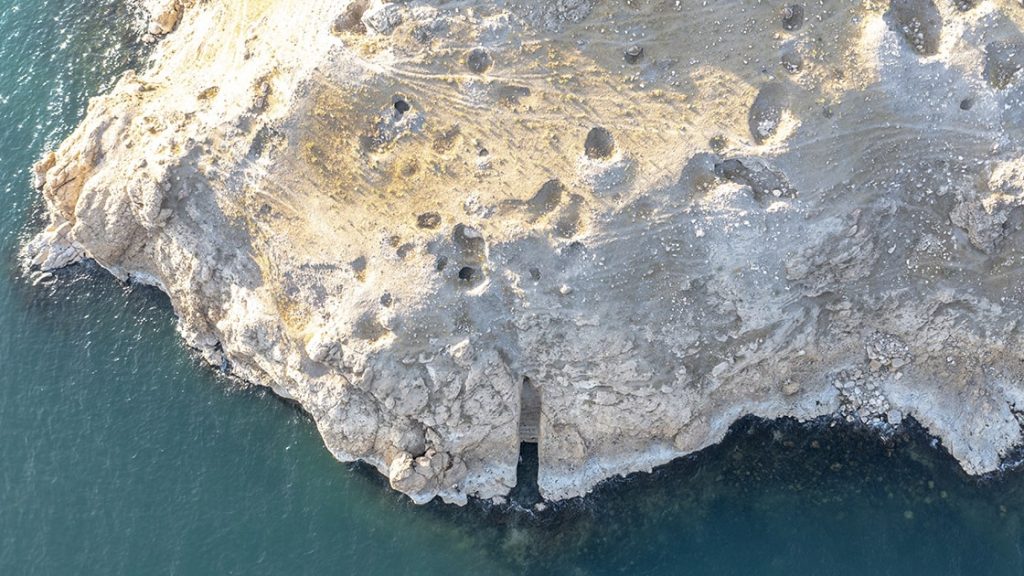
Van Yüzüncü Yıl University, Faculty of Letters, Head of Archeology Department Prof. Dr. Rafet Çavuşoğlu told Anadolu Agency (AA) that the port in question is located on the outskirts of the registered castle called “Beylerin Castle” on the shores of Erciş district.
Stating that this place was used as a Port Castle during the Urartu period, Çavuşoğlu stated that a port consisting of 11 steps with a width of 3 meters was built so that ships could dock comfortably on the bedrock at a height of approximately 20 meters at the junction of the lake.
Noting that the Urartians are actively using the Van Lake, Çavuşoğlu said that a section was opened in order for the heavy loads used in sea transportation to be unloaded more easily and for the boat to stand more comfortably.
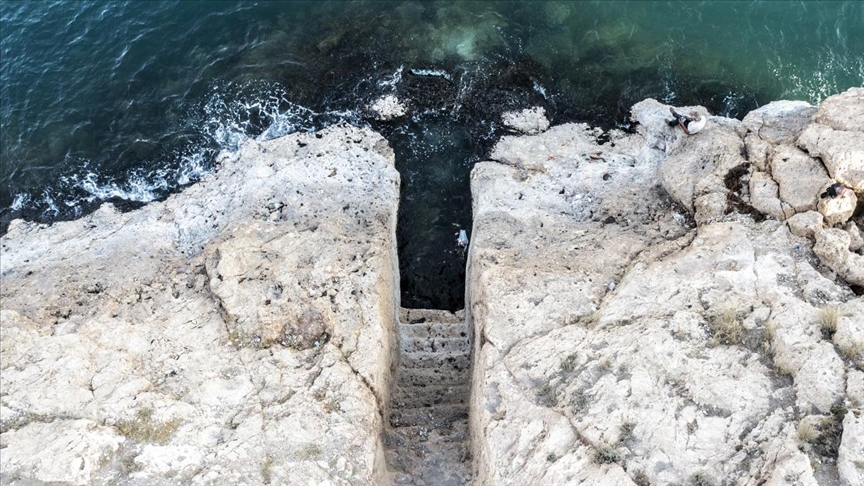
“We know that the Urartians built castles both to the south and to the west, starting from the Van Castle. Most of these castles are located on the edge of Lake Van. Ayanis and Kef castles are one of them. We see that the Urartians attach importance to sea transportation in order to provide transportation between the castles during the long winter months,” he said.
Stating that this is the first time they have encountered such a structure, Çavuşoğlu said that the natural coves acted as harbors for the Urartians, but that no remains of these structures have been found so far.

